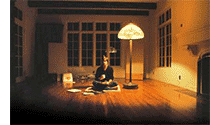My lean journey of more than 20 years has changed my life in many ways, perhaps none as pervasively as recognition of and disdain for waste.
Along with respect for people, waste awareness has changed my career, leadership style, and personal life. Observing waste has led to a life of increasing minimalism, which isn’t necessarily a bare-bones existence but one where every activity and object creates value or joy. Let’s take a look at some specific areas of impact.

In the home and office
We’ve all seen the photo of Steve Jobs in his extreme, minimalist living room. I’ve long been 5S-ing my garage, desk, and so forth. Of course, I should be asking myself why I have to do it multiple times—somehow I am not (or, ahem, others in my household are not) implementing the “sustain” step very well.
…
Add new comment